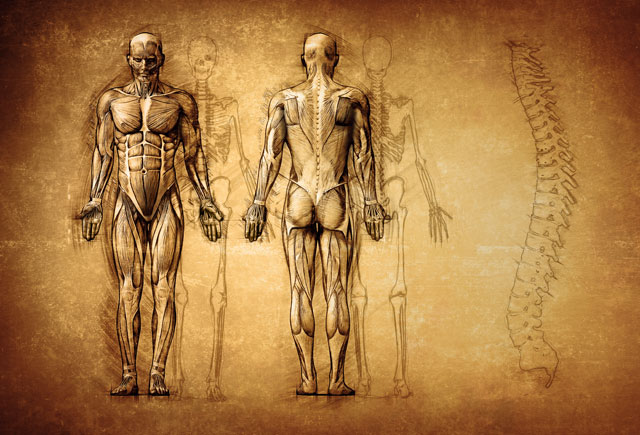Introduction: As you begin your career as a professional personal trainer you may find yourself 100% devoted to your job. And you might just think, since you have such a healthy career that this is ok. What you will learn, after a time, is that doing any job 100% of the time has a negative effect on that very job.
Not breaking your mind and body from the same thing, day after day, year after year, is exhausting on the body and not healthy at all. It works against the need for creativity, for mental acuity, and for joy in life. Without those three things your job, your physical and mental health, and your social outlets, all which contribute to an overall successful life, will suffer. Research has shown that the brain requires sleep and rest to function well. Memory is improved, the brain is given time to "reformat" information and improve the neural connections that cause us to process information effectively, and our subconscious is allowed to surface with some of the deepest thinking we do
High levels of performance at work, is found best when downtime allows the brain to naturally restore and renew our ability to attend, motivate productivity and creativity and stability of decisions. Downtime is time that we free our minds of all requirement. It is daydreaming, walking and focusing on nature, listening to music and any number of non-active, non-engaging mental or physical energy. Down time is one way to gain a healthy balance between different parts of our life. Preventative breaks for mind time-off is one way to avoid disaster in so many areas of your life as well as a way to pave your road to success in all things.
A. Stages of work-life balance: It is important to understand that just as your life has stages and your job has stages, balancing the two will look different at the various stages of your life. Often a person becomes more balanced with age, and yet, as your life expands and becomes more complicated the need to retain that balance is greater.
You might call your first stage of life, that time when you are stepping into your first adult work or career as the "embryo" stage. You are totally encased within your focus of your first real job or career. All of your energy is given to the development and formation of the work day. You have little time for friends, old hobbies, or creative interests aside from your focus on embedding yourself into your efforts at work. Efforts to learn, connect, develop your strengths and to "fit" in this career cocoon take every moment of your time, thinking, your spirit, and energy.
The day finally arrives when you realize that you belong. You have been birthed into your position and you feel accepted, part of a family, and are bolstered by the support you find, the growth and momentum of where you are headed and a feeling of finally being part of the real adult working world. The trouble comes when you continue to work like you are still trying to "fit" in. It is difficult to move past the stage where you are narrowly focused on starting a business to where you have established yourself and you belong to that community of adults in business.
If you can learn to accept that you do belong where you are, that this is a good place for you to be at this point, then you can begin to grow in other ways. Your ability to prioritize, manage, and understand the relationship between your job and the rest of your life can blooms. This "puberty" is an awkward stage and you will stumble through it, make mistakes, lose your earlier confidence, and focus once again on where you fit in now that you are moving within circles of established peers. You might feel alone, find yourself trying to be like others, or losing a bit of yourself. Think junior high school all over again.
Suddenly one day you find yourself feeling comfortable in your skin with your work. Your confidence is rebuilt, you broaden your skills, see your work as one part of an intricate world of other people and begin to hone your goals. You learn how to relax and enjoy family, friends and other things beyond your world of work. You are able to explore other frontiers of life and not totally live in the shade of your work.
Your sights begin to adjust and you allow other people outside of your job, to become important, and relationships to form. You may choose a partner, have children, decide to pick up and move, turn your career in a new direction and explore the possibilities the world beyond the doors of your workplace offers. You are in the full-fledged "grown-up" stage.
Then one day, after years of ups and downs, dealing with both the struggles and the triumphs of life, you sit back and feel accomplished. You have found some success in work and in life and you find yourself facing an age of letting go of some of the work focus. You are nearing the retirement phase where work takes a backseat and other things in life move to the center. Sometimes during this phase, a person continues to balance life and work but in different ways. It is an individual consideration and as difficult as it was in the beginning to "fit" in, it is now just as difficult to move away from that spot where you used to fit and into a new place. You begin to let go of work importance and find the balance of your energy shifting to things not work related.
In each of these stages, the most successful person strives to find the balance between life and work early, to maintain that balance, be in charge of the balance, and understand that life should not be totally centered on either one to be happy.
B. Managing the work-life balance: There are ways to manage a life-work balance. First you have to look at what happens when you work. You have to examine how you spend your time and when, during the day, you find you are at your fittest mentally. Create simple systems for your work flow to end wasted time. Make lists, attend to things as soon as they come up if possible, and stay organized. Use timers, alarms and other techy inventions to remind you of necessary appointments, specific chores, or when it is time to put the work down for a break.
And as you do with your day, plan your week, your month and your year to stop and attend to other things beyond the realm of work. Take those vacation days and turn off the communication with work. Learn to enjoy life beyond the cubicle. Find times to simply put your mind in "idle" for 5 or 10 minutes throughout your day without allowing thought. Pick up the habit of meditation. Often the best ideas, and the most creative and useful plans rise up when the mind is allowed to vegetate. Research shows that a person reaches their highest level of performance when the mind is cleared. Our brains require 20% of all energy used by our bodies. To lay down and rest the body and give more energy to the brain, to meditate, or simply rest the brain, the energy saved recharges your whole day. Every time your computer tells you it is updating, you need to allow your body and brain to do the same. Problem solving can happen in the brain when you stop the processing of new information, continually rehashing of information and worrying about your work.
Brain imaging has shown that when you put your mind into suspension, the brain will automatically make connections with parts of the brain you seldom call on for use. To allow your whole brain to work for you, requires the ability to stop pushing one side of your brain and allowing the other side to have influence. Just as allowing your brain to recharge and move on its own accord, doing things in different ways will wake up parts of the brain that you rarely use. Music will open one section of the brain, looking out the window, turning a fan on yourself to jolt the nerves in the skin, using scented lotions to wake up your sense of smell, and sitting on a ball while working on the computer or simply standing to work will all reach into our minds and make us more aware.
Learn to say no. Turn off your phone. Prioritize what you need. Do you really need to vacuum the carpets every day? Question how you spend your time and how it measures up with the things you really value. An embrace feels good but if that embracing of one thing does not let go, it becomes a burden instead of an embrace. Stop trying to be all things to all people. Super heroes are fictional. Look at most famous and successful people and how they struggled to get where they are. It is in the struggle that you are formed for greatness. Don't work to be perfect, work to be great.
Learning to be mindful of the world around you outside of work, of the world within you not connected to your work and to others who are not connected to your work. Often as a person moves into the adult stage, they lose the impromptu notions that keep youth alive. Going to concerts, laying in the grass, playing games, or other simple activities like hiking, day trips or movies can be life savers.
C. Becoming a personal trainer/life coach: In the career of the professional personal trainer, you have the advantage over many careers in that you focus on wellness. The career of a life coach is a similar career. The focus of a life coach is on individuals who need guidance to find that balance in their life, to learn how to manage their day to day problems and overcome specific challenges. It is actually a career that you might consider getting certification because it offers the other side of the physical training and would complement all you already do.
While you help people reach goals to become more physically healthy, the side effect of that is better mental health. In life coaching, the trainer works to build confidence, self-worth, developing appropriate relationships, taking care of self needs, managing anger, stress, depression, changes, grief, and often using exercise, art, self-expression and yoga. If you see your work in this light, and you are willing to get another accreditation, you will broaden the scope for clients and learn to manage your own life along the way. Few other careers are so fitted to work together.
Seeking a life-work balance can be a life time of work. Certainly finding the right balance for the stage of life you are in does change. Just like your needs change from the embryo state to puberty and into adulthood of a career, your balance with parts of life that are not centered on work changes. Visuals have been used in this class to give clarity to different things and finding a life-work balance might also be seen in a visual. Think of life as everything you do not connected with your job or your career or your work. What does it look like? If one circle is much larger in the amount of time, energy, cost to your physical and mental wellness, or in any other way, it is not a healthy balance and you must evaluate what you are doing.
D. Conclusion and Assignment: In conclusion of this article of this class on becoming a professional personal trainer, there is the challenge to arm yourself with the systems, effective ways of thinking, habits, and choices that will give you that success you seek. Like many doctors who fail to take care of their own health, don't be the personal trainer who fails to stay healthy, fit and seek wellness in mind and spirit, body and relationships.
Your assignment this week: Examine your life-work balance. Think about which stage of career life you are in. Make a Venn diagram similar to the one above and see how much overlap there is in your situation. The more they overlap, the less balance there is. In other words, if your life is your work and your work is all you have in life, you are in trouble.
|
P.T. Tips
Keeping your life balance, is like keeping your mind and body balance.If one overtakes the other, you become unhealthy. Live the balanced life, teach the balanced life, and be a walking demonstration of that balanced life.
|
































